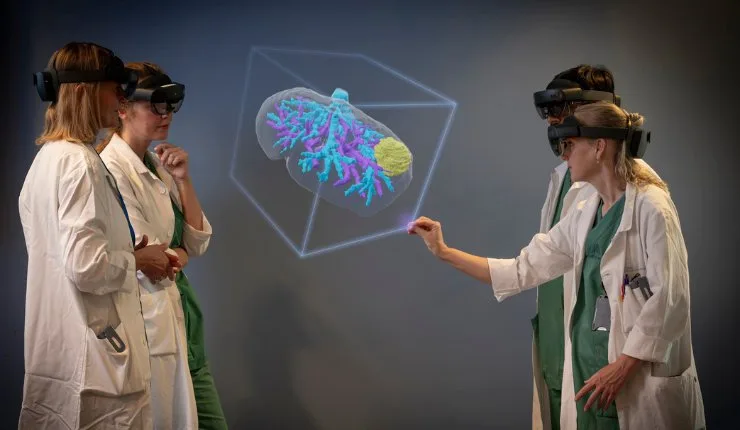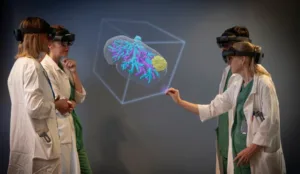The European Union, through its Horizon Europe program, has granted an €8.9 million ($9.5 million) award to the HoloSurge project, a collaborative effort among 14 leading European institutions in technology and healthcare. The award is the largest of its kind. The project, set to run for four years, focuses on advancing organ hologram technology to improve the planning and execution of surgeries.

Developed by Norwegian medtech firm HoloCare, the technology currently facilitates liver surgery, enabling surgeons to use interactive 3D holograms for a more personalized approach to medical procedures. Utilizing augmented reality headsets such as the Microsoft HoloLens, medical professionals can manipulate these holograms to view organs from various angles, thereby enhancing precision and collaborative planning.
The funding is part of the approximately $100 billion Horizon Europe program, which supports research that addresses societal challenges, promotes industrial leadership, and advances scientific excellence. Trials involving the technology at five European hospitals have demonstrated a 74% reduction in the time required to align organs during surgery compared to traditional MRI scans. This efficiency is expected to decrease the common surgical complications such as infections and organ damage.
The HoloSurge project aims not only to refine this technology for liver surgeries but also to expand its application to pancreatic cancer surgeries, where it could significantly improve outcomes. The initiative will also focus on ensuring that the holographic technology complies with regulatory standards and integrates smoothly into existing surgical workflows.
Dr. Thomas Lango, a chief scientist involved in the project, highlighted the potential for this technology to transform minimally invasive procedures by providing a 3D understanding of anatomy, which is currently unachievable with conventional 2D imaging techniques.

